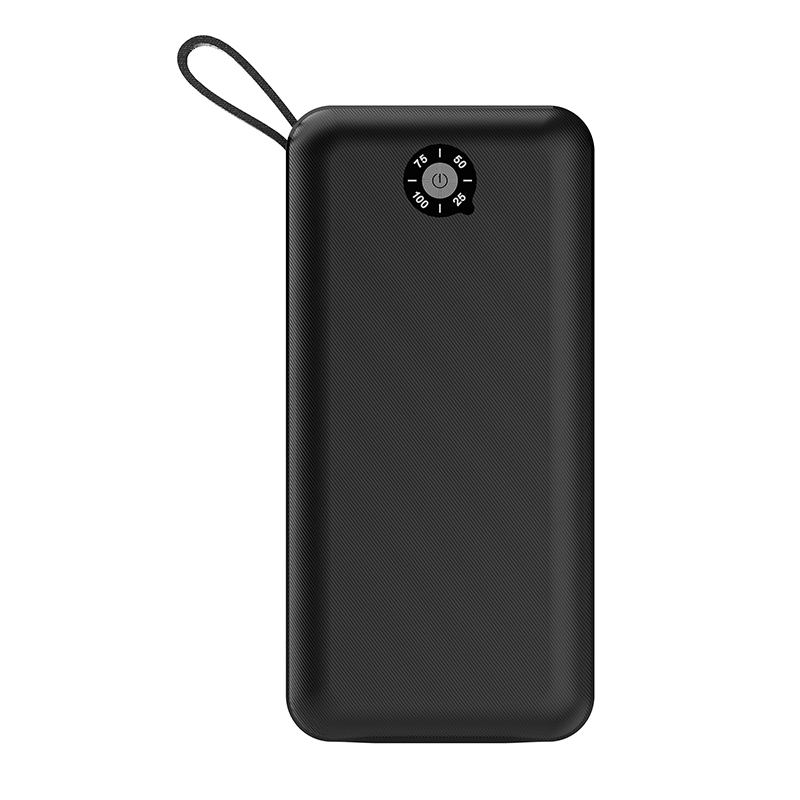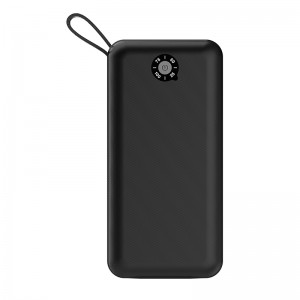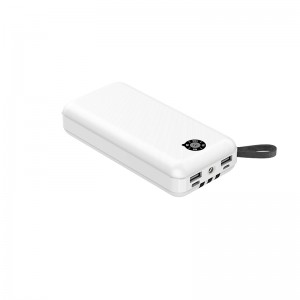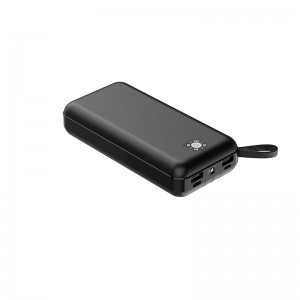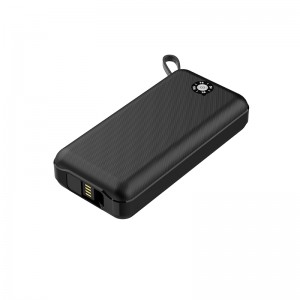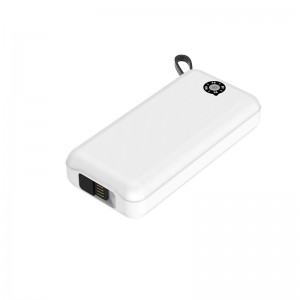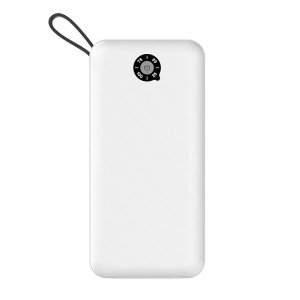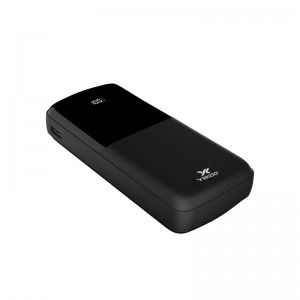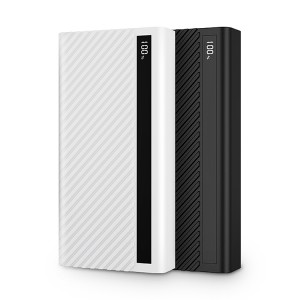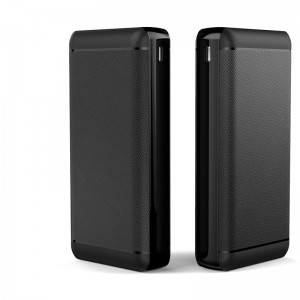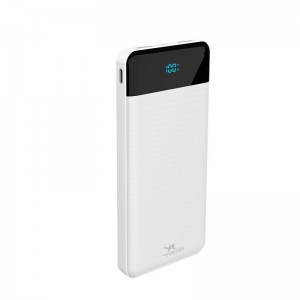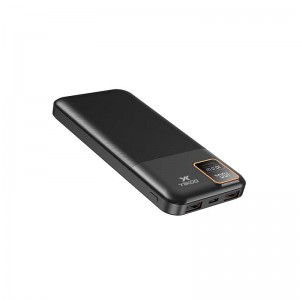Mini Portable Powerbanks With Led Light 20000 mAh Power Bank Built in cables Y-BK005
Product parameter characteristics
| Capacity | 20000mAh |
| micro Input | 5V/2A |
| Type-C Input | 5V/2A |
| USB-A cable Input | 5V2A |
| USB-A1 Output | 5V/2.1A |
| Lightning cable Output | 5V2A |
| TYPE-C cable Output | 5V2A |
| Micro cable Output | 5V2A |
| Total Output | 5V2.1A |
| Power display | Digital display |
Description
Power banks are essential accessories for anyone who relies on their devices for work, entertainment or communication. Whether you need to charge your phone, tablet, laptop, or other device on the go, a power bank is a convenient and reliable solution that ensures you stay connected at all times. By considering the different types of power banks available, as well as the key factors to consider when choosing a power bank, you can find the perfect power bank to suit your needs and keep your devices charged and ready for use.
Power Bank is a portable device that can charge your electronic devices on the go. It is also known as a portable charger or external battery. Power banks are common gadgets nowadays, and they provide a great solution when you are on the move and don't have access to an electrical outlet. Here are some key product knowledge points about power banks:
1. Capacity: The capacity of a power bank is measured in milliampere-hour (mAh). It indicates the total amount of energy stored in the battery. The higher the capacity, the more charge it can store and deliver to your device.
2. Output: The output of a power bank is the amount of electricity it can deliver to your device. The higher the output, the quicker your device will charge. The output is measured in Amperes (A).
3. Charging Input: The charging input is the amount of electricity a power bank can accept for charging itself. The charging input is measured in Amperes (A).
4. Charging time: The charging time of a power bank depends on its capacity and input power. The larger the capacity, the longer it takes to charge, and the higher the input power, the shorter it takes to charge.


